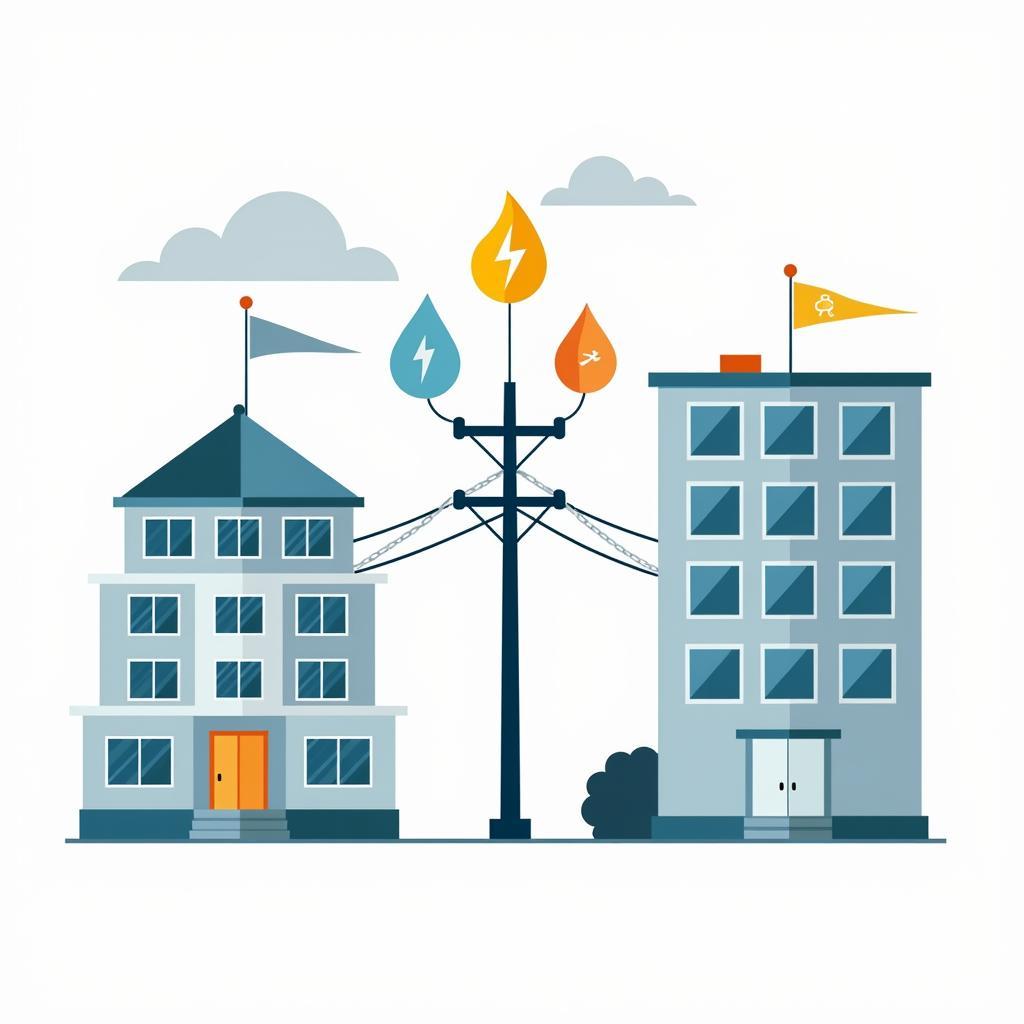Public utilities privatization has been a recurring topic in IELTS Writing Task 2, appearing approximately 2-3 times annually since 2019. This frequency suggests it will likely continue as a significant examination theme. Here’s a recent actual test question that exemplifies this topic:
Some people think that essential public services like water supply, electricity and gas should be managed by private companies rather than the government. Do you agree or disagree?
Question Analysis
This question requires candidates to:
- Take a clear position on privatization of utilities
- Support arguments with relevant examples
- Consider economic and social implications
- Structure response logically with clear progression
- Use appropriate academic vocabulary

Sample Essay 1 (Band 8.5)
The privatization of essential public utilities remains a contentious issue globally. While some advocate for private sector management of these services, I firmly disagree with this approach, believing that government control better serves public interests.
Firstly, government management of utilities ensures universal access to essential services. When utilities remain under state control, pricing can be regulated to ensure affordability for all citizens, including vulnerable populations. For instance, in Singapore, government-managed water utilities maintain reasonable prices while ensuring high service quality. Conversely, private companies primarily focus on profit maximization, potentially leading to increased costs that burden lower-income households.
Moreover, public sector management better facilitates long-term infrastructure planning and development. Government agencies can coordinate comprehensive urban development strategies without pressure for immediate returns on investment. For example, South Korea’s successful public electricity infrastructure demonstrates how state management enables systematic grid expansion and technological upgrades, prioritizing public benefit over short-term profits.
However, critics might argue that private companies operate more efficiently. While this may be true in some cases, the social cost often outweighs operational efficiency gains. In many countries where utilities were privatized, such as certain regions in the Philippines, service quality declined in less profitable areas while prices increased substantially.
In conclusion, while private sector efficiency has its merits, the fundamental nature of public utilities as essential services necessitates government control to ensure equitable access and sustainable development.
Sample Essay 2 (Band 6.5)
I disagree with the idea that private companies should manage essential public services because these are basic needs for people’s lives.
The main reason is that private companies always want to make more money. When they control water, electricity, and gas, they might increase prices too much. This makes it difficult for poor people to pay their bills. For example, in my country, when some private companies started managing water supply in certain areas, many families couldn’t afford the higher prices.
Another problem is that private companies might not care about all areas equally. They usually focus on places where they can make more profit, like big cities. This means rural areas or poor neighborhoods might get worse service or no service at all. This happened in some developing countries where private companies only provided good services in rich areas.
Also, government management is better because they can plan for the future. They don’t need to think about making money quickly and can focus on building good systems that last long time. For example, many successful countries have good public utilities because their governments managed them well.
In conclusion, I think government should continue managing essential public services because this is better for all people, especially those who don’t have much money.
Analysis of Band Scores
Band 8.5 Essay Analysis:
- Sophisticated vocabulary and complex structures
- Clear position with well-developed arguments
- Relevant examples from multiple countries
- Excellent cohesion and coherence
- Addresses counterarguments professionally
- Academic tone maintained throughout
Band 6.5 Essay Analysis:
- Simple but clear arguments
- Basic vocabulary with some repetition
- Limited range of structures
- Examples are general rather than specific
- Basic cohesive devices
- More personal tone
Key Vocabulary
- contentious (adj) /kənˈtenʃəs/ – causing or likely to cause disagreement
- universal access (n) /ˌjuːnɪˈvɜːsl ˈækses/ – availability to everyone
- infrastructure (n) /ˈɪnfrəstrʌktʃə/ – basic physical systems of a country
- vulnerable populations (n) /ˈvʌlnərəbl ˌpɒpjuˈleɪʃnz/ – groups at higher risk of harm
- operational efficiency (n) /ˌɒpəˈreɪʃənl ɪˈfɪʃnsi/ – level of performance in operations
For practice, try writing your own essay addressing this alternative question:
“Some argue that privatizing public utilities leads to better service quality and innovation. To what extent do you agree or disagree?”
Share your practice essays in the comments for feedback and discussion.